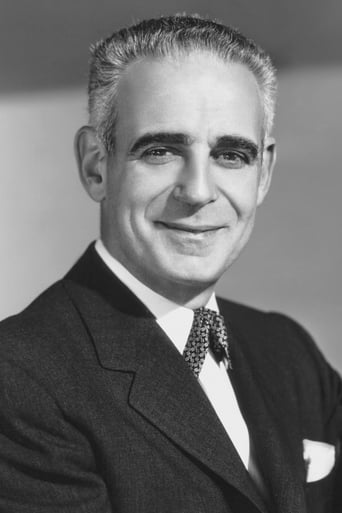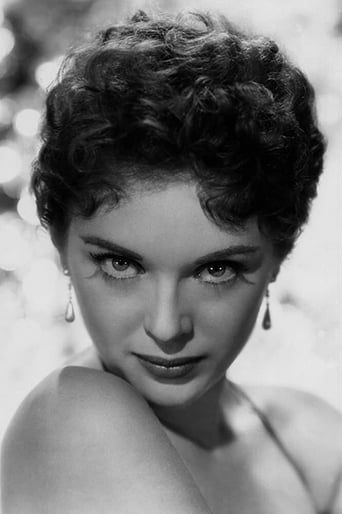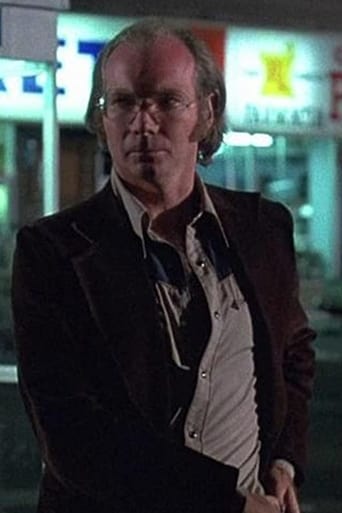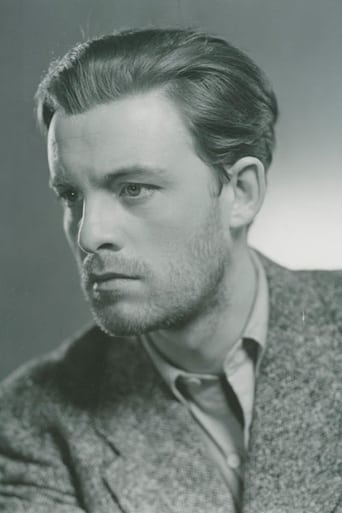Spidersecu
Don't Believe the Hype
Fairaher
The film makes a home in your brain and the only cure is to see it again.
PiraBit
if their story seems completely bonkers, almost like a feverish work of fiction, you ain't heard nothing yet.
Micah Lloyd
Excellent characters with emotional depth. My wife, daughter and granddaughter all enjoyed it...and me, too! Very good movie! You won't be disappointed.
Iris Biran
On the Holocaust Eve. 5/4/16, I watched this film on Israeli TV. I love old films,but this time, it had a special meaning for me. It turns out that my mother was staying at a retreat in Kibbutz Hanita in the Upper Galilee in Israel while this film was shot there(1953). She remembers that the guests were sitting and watching the filming, and says that Kirk Douglas was very handsome. I could also recognize places in downtown Haifa, my hometown, where the policeman scene was filmed, and to see Haifa harbor as well. It was very exciting to hear it from my mother and to see familiar places in a film that was made before I was born.
Robert J. Maxwell
I don't know why this isn't a better know film because it's generally well acted and thoroughly absorbing.Kirk Douglas is a famous German juggler who has survived a concentration camp where he lost his wife and children. He winds up a refugee in Haifa but his experiences have left him deranged, mistaking strange women for his wife, claustrophobic, bitterly mistrustful of authority. He runs away from the refugee camp, battering a curious policeman almost to death, and hikes across much of Israel with a boy, Joseph Walsh, that he's picked up along the way. When he reaches a remote kibbutz, they welcome him, and he and one of the staff, Milly Vitale, fall in love. But the police are on his trail because of the assault on the cop. They capture him and take him away for trial and psychiatric treatment.Describing the tale in a precis like this drains it of all blood. Along with "Champion", it's certainly one of Kirk Douglas' finest performances. The climactic scene in which he's locked all the doors to a tiny cabin and threatens to kill any policeman who tries to break in is indescribable. Milly Vitale, at the door, makes the point that he hasn't locked others out, he's locked himself in. And when Douglas realizes that she's speaking the truth, his eyes roll back and his face is distorted with anguish.Of course it's overdone. This is Hollywood speaking. And they want to make sure you get each particular point, even if they have to hit you over the head with a crowbar to do it. Thus, when Douglas' shirt sleeve is accidentally rolled back, uncovering his tattoo, someone must remark, "That's a concentration camp number. You must have been in a concentration camp!" The last shot is a disappointment, with Douglas on his knees, begging for help.At the kibbutz we get the happy peasant cliché. Everyone is kindly and unpretentious. They take pleasure in simple things, like the arrival of two cows, which they decorate with flowers. And after that, there must be a folk dance to George Antheil's frenzied music and Edward Dmytryk's gigantic close ups of wildly happy faces.The cast look genuine enough in dusty work clothes. Douglas appears only briefly with his hair carefully trimmed, combed, and moussed. But Milly Vitale is always made up and wears a stylish 1953 do. That's a mistake, because Milly Vitale is radiant and doesn't need her face plastered with goo.But there are moments, sometimes brief, just a line or two of dialog, that stand out as if accompanied by barely perceived fanfares. On a hilltop, Douglas is explaining how he lost his family -- thank God, no flashbacks -- and then he answers all her questions with old jokes or tricks. As for how he was swept up, "The juggler is juggled." Why can't he accept the kibbutz as his home? Douglas is juggling four oranges (he's pretty good) and he repeats, in time with the rotation of the fruit, "Home . . is a place . . you lose." Like "The Pawn Broker," the film deals not with the suffering of the concentration camps but with the suffering that lives on within us after the horror is "over." It's a difficult movie to forget.
Neil Doyle
KIRK DOUGLAS struggles to forget the horrors of a concentration camp in THE JUGGLER, another one of Stanley Kramer's serious socially conscious films of the '50s. Unfortunately, the end result is a film that doesn't really connect with its target audience despite a solid performance by Douglas as the troubled Jew from Israel unable to overcome his fear and bitterness.Unfortunately, Kramer had a habit of assigning George Antheil to score his films. Antheil contributes another inappropriate score heavily accenting any melodramatic moment that points up Kirk's anguish, much the way he did in Kramer's NOT AS A STRANGER. It didn't work there and it doesn't work here, especially during the "escape" scene where the music reaches a frenzied fever pitch of discordant notes.It's hard to fully sympathize with Douglas' tormented character and that is the film's chief handicap. As the man tracking down the fugitive, PAUL STEWART does his usual workmanlike job. Trouble is, there's an almost documentary feel to the story and its pivotal character is never fully fleshed out, remaining somewhat of an enigma despite Douglas' good performance. When romance comes into the story with the entrance of MILLY VITALE, Douglas' character softens a little under her compassionate care.Some vivid glimpses of Israel, circa 1949, and good location photography gives the story an authentic air, but the story values are never more than ordinary and the total effect is bland.Worthwhile mainly for Kirk Douglas fans, it fails to make the impact intended as a serious study of a man haunted by prison camp memories.
dbdumonteil
One of Kirk Douglas' more intense performances,it is a pity that this movie should remain a buried treasure."Surviving the horror" could be another title for "the juggler" .A Jew ,who has lost all his family and who has known the concentration camps comes back to the promised land in 1949.Life during WW2 camps has often been described,but life AFTER the nightmare is a subject which has rarely been told in movies with a few exceptions ("die Morder sind unter uns ":Susanne's character and "Exodus": the young man played by Sal Mineo).But never as successfully as here.Hans cannot forget.His psyche is shot."I'm the juggler and the juggled" . He tries to find back his dear departed although he knows they were killed.He suffers from claustrophobia and Douglas makes us FEEL his disease (the film owes a great deal to this extraordinary actor),and every time he sees men in uniform ,he thinks of his torturers.Admirable sequences: Douglas in the desert town ,with all these walls which imprison him ,and those men around who are threats .The minefield where the distraught man and his young pal are rescued by their fellow men who form a human chain.In his absorbing memoirs,Douglas wrote that he once helped Dmytryk who was one of the Unfriendly Tens .But when they made "the juggler" ,the director acted as if they had never met.Douglas thought he was ashamed for having been an informer.But he did not judge him at all.What would I have done if I had been in his shoes ? he wrote.Many films might suggest that Dmytryk was suffering from of a strong guilty feeling: "the sniper" with his burned arm,José Ferrer's arm in a sling in "Caine Mutiny" .And in this film ,Douglas "gagging" his arm-mouth ,or covering it to hide his tattooed number.I agree with all the precedent users.A film which must be restored to favor.




